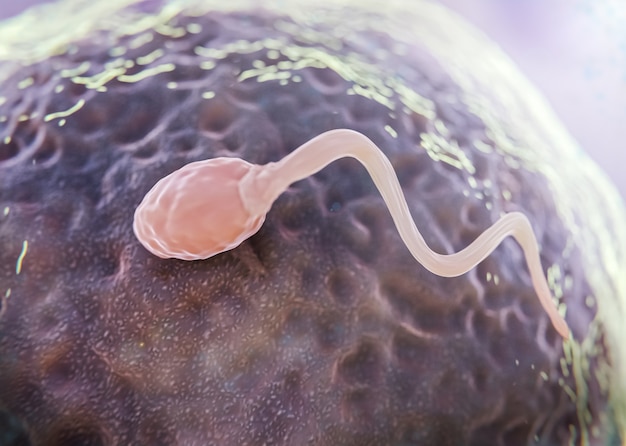Ask Ayurvedic doctor a question and get a consultation online on the problem of your concern in a free or paid mode. More than 2,000 experienced doctors work and wait for your questions on our site and help users to solve their health problems every day.
Azoospermia Treatment in Ayurveda – Natural Solutions for Male Infertility

Introduction to Azoospermia and Ayurveda
Azoospermia is a medical condition characterized by the absence of sperm in a man's semen, leading to male infertility. This condition can be classified into two types: obstructive and non-obstructive. In obstructive azoospermia, sperm production is normal, but there is a blockage preventing sperm from being released during ejaculation. In non-obstructive azoospermia, there is a problem with sperm production itself. While modern medicine often relies on assisted reproductive technologies (ART) like ICSI or sperm retrieval, Ayurveda offers a holistic approach to address the underlying causes of azoospermia through natural remedies, lifestyle changes, and dietary recommendations.
Don't wait or self medicate. Start chat with Doctor NOW
Historical Roots & Ayurvedic Significance
In Ayurveda, male infertility is often linked to an imbalance in the Shukra Dhatu (semen), Vata dosha (air element), and Rakta Dhatu (blood). The classical Ayurvedic texts emphasize the importance of restoring the balance of the doshas, rejuvenating reproductive tissues, and improving digestion to enhance Shukra (semen) production and quality. A holistic approach in Ayurveda involves a combination of herbal treatments, detoxification, dietary changes, and rejuvenative therapies to address azoospermia and improve male fertility.
Key Ayurvedic Principles for Treating Azoospermia
1. Balancing the Doshas
The imbalance of the Vata, Pitta, and Kapha doshas can contribute to male infertility. Ayurveda focuses on restoring this balance through herbal remedies and treatments tailored to the individual's dosha constitution. Vata imbalance is often the main cause in azoospermia, leading to poor circulation and hormonal imbalances.
2. Rejuvenation of Shukra Dhatu
The Ayurvedic treatment for azoospermia emphasizes the rejuvenation of Shukra Dhatu, the tissue responsible for semen production. Herbs like Shatavari and Ashwagandha are known to nourish and strengthen the reproductive tissues, thereby improving sperm count and quality.
3. Detoxification (Panchakarma)
In Ayurveda, the process of detoxifying the body is essential for restoring optimal health. Panchakarma, a therapeutic cleansing process, helps eliminate accumulated toxins (Ama) from the body. This process is believed to purify the reproductive system, improve circulation, and enhance sperm production.
4. Herbal Remedies and Supplements
Ayurveda uses a variety of herbs that have been shown to improve sperm count, motility, and overall fertility. Common herbs used in the treatment of azoospermia include:
- Ashwagandha (Withania somnifera): Known for its ability to increase sperm count, motility, and improve overall vitality.
- Shatavari (Asparagus racemosus): This herb is considered highly beneficial for improving sperm quality and rejuvenating the reproductive system.
- Gokshura (Tribulus terrestris): This herb is used to enhance libido and improve sperm count by improving circulation to the reproductive organs.
- Safed Musli (Chlorophytum borivilianum): Known for its aphrodisiac properties, it helps increase sperm production and improve overall male fertility.
5. Dietary Recommendations
Diet plays a significant role in male fertility. Ayurveda recommends a diet rich in whole grains, nuts, seeds, and fresh fruits to support reproductive health. Avoiding processed foods, excessive alcohol, and tobacco can also improve sperm quality. Certain foods are believed to enhance Shukra Dhatu, such as ghee, milk, and sesame seeds.
How Ayurvedic Treatment for Azoospermia Works
The Ayurvedic approach to azoospermia works by addressing both physical and emotional factors that contribute to infertility. Herbal formulations help enhance Shukra Dhatu, restore hormonal balance, and improve circulation to the reproductive organs. Panchakarma treatments, combined with lifestyle changes and a nutritious diet, detoxify the body and purify the reproductive system. This holistic treatment helps to improve sperm quality, motility, and count, thus enhancing the chances of conception.
Choosing the Right Ayurvedic Remedies & Guidance
When choosing Ayurvedic treatments for azoospermia, it is essential to consult a certified Ayurvedic practitioner who can provide personalized guidance based on your individual constitution and health needs. A thorough assessment of your Prakriti (body type), Vikriti (imbalances), and the root cause of azoospermia will help determine the most effective treatment plan.
Factors to Consider:
- Personalized Consultation: A qualified Ayurvedic practitioner will assess your health history, lifestyle, and dosha imbalance to recommend specific treatments.
- Herbal Quality: Ensure that the herbs and supplements are organic, authentic, and free from contaminants for maximum effectiveness.
- Lifestyle Changes: Incorporate Ayurvedic lifestyle changes, including stress management, physical exercise, and sleep regulation, to improve overall reproductive health.
Recommended Ayurvedic Treatments for Azoospermia
-
Herbal Supplements:
- Ashwagandha: 500 mg once or twice a day.
- Shatavari: 1-2 grams, twice a day.
- Safed Musli: 1 gram with milk, twice a day.
-
Panchakarma Therapy: Consult an Ayurvedic practitioner for appropriate Panchakarma treatments to detoxify the body, enhance circulation, and promote reproductive health.
-
Massage (Abhyanga): Regular oil massage with herbal oils like Bala Taila or Kshirabala Taila can improve circulation and promote relaxation, which is essential for fertility.
-
Dietary Changes: Incorporate foods that strengthen Shukra Dhatu, such as ghee, almonds, pumpkin seeds, and spinach.
Potential Side Effects & Precautions
While Ayurvedic treatments for azoospermia are generally safe, it is essential to follow the prescribed dosage and guidelines. Some herbs may cause mild side effects, such as digestive upset or skin reactions. Always consult a practitioner before starting any new herb or supplement.
- Consult an Expert: Before using Ayurvedic herbs, especially in combination with other treatments or medications, consult a qualified Ayurvedic practitioner.
- Pregnancy Considerations: If the couple is trying to conceive, both partners should undergo treatment, as female fertility factors can also affect the outcome.
Frequently Asked Questions for Azoospermia Treatment in Ayurveda
What is azoospermia and how does Ayurveda treat it?
Azoospermia is a condition where there is no sperm in the semen. Ayurveda treats this by balancing the doshas, improving the quality and quantity of Shukra Dhatu (semen), and addressing lifestyle and emotional factors. Herbal remedies, detoxification therapies like Panchakarma, and dietary changes are central to Ayurvedic treatment.
Which herbs are effective for azoospermia in Ayurveda?
Effective herbs for azoospermia include Ashwagandha, Shatavari, Gokshura, and Safed Musli. These herbs help improve sperm count, motility, and quality while rejuvenating reproductive tissues.
How long does it take to see results from Ayurvedic treatment for azoospermia?
Results can vary based on individual conditions. Typically, improvements may be noticed after 3-6 months of consistent Ayurvedic treatment, including herbal supplements, dietary changes, and lifestyle adjustments.
Are there any side effects of Ayurvedic herbs for azoospermia?
When used correctly and under the guidance of a certified practitioner, Ayurvedic herbs are generally safe. However, some individuals may experience mild digestive upset or skin irritation. Always follow the recommended dosage.
Can Ayurveda cure azoospermia completely?
While Ayurveda can significantly improve sperm quality and quantity, the results vary from person to person. In many cases, Ayurvedic treatments help improve fertility and increase the chances of conception naturally.
Can a diet improve azoospermia in Ayurveda?
Yes, Ayurveda places great emphasis on diet to improve Shukra Dhatu. Foods rich in healthy fats, protein, and micronutrients such as ghee, milk, almonds, and pumpkin seeds are recommended to support fertility.
Where can I find Ayurvedic treatment for azoospermia?
You can consult a certified Ayurvedic practitioner who specializes in fertility and reproductive health. Many Ayurvedic clinics also offer Panchakarma therapy for fertility enhancement.
Conclusion & Expert Insights
Azoospermia is a challenging condition, but Ayurveda offers a holistic approach to addressing the root causes of male infertility. By using herbal remedies, detoxifying therapies, and lifestyle changes, Ayurveda supports the restoration of reproductive health and improves sperm quality and count. Consulting with a qualified Ayurvedic practitioner can help tailor a personalized treatment plan, increasing the chances of conception and improving overall reproductive health.
References & Further Reading
- Sharma, P.V. (1995). Ayurvedic Healing: A Comprehensive Guide.
- Lad, V. (2002). Ayurveda: The Science of Self-Healing.
- National Institute of Ayurveda:
- Journal of Ayurveda and Integrative Medicine for research on male infertility and Ayurvedic treatments.



